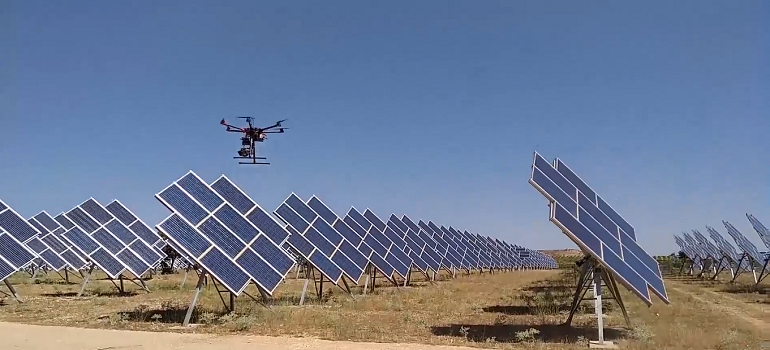 China’s new solar capacity demand is expected to slow down this year as compared to the record growth achieved in 2017 claims a report citing an industry official. The report states that this will put manufacturers under mounting pressure at a time when government subsidies are in decline.
China’s new solar capacity demand is expected to slow down this year as compared to the record growth achieved in 2017 claims a report citing an industry official. The report states that this will put manufacturers under mounting pressure at a time when government subsidies are in decline.
According to Reuters Wang Bohua, vice-chairman of the China Photovoltaic Industry Association, told a sector conference that installed solar generation capacity was forecast to rise by about 40 gigawatts (GW) in 2018, against last year’s 53 GW increase.
China’s total solar capacity hit 130 GW in 2017, accounting for 32.4 percent of the global total.
The report states that manufacturers have ramped up production over the past two years as governments commissioned hundreds of new projects to meet targets for clean energy, but the industry might now be suffering from overcapacity.
“Small and medium-sized enterprises are definitely under pressure,” said Wang, noting that some had already cut utilisation rates to about 65 percent and could close this year.
The rapid growth in China’s solar sector has relied on generous state subsidies, including higher tariffs paid to renewables companies for each kilowatt-hour they supply to the grid.
But with solar power costs cut by 90 percent from 2007 to 2017, and the government struggling to find the funds required to pay the subsidies it owes to vast numbers of new projects, China is switching to other forms of support.
China is considering a quota system that will force grids to source a stipulated percentage of power from local renewable generators.
According to draft guidelines, quotas for each region will be set in accordance with renewable energy resources, with hydropower-rich Sichuan in southwest China forced to bring renewables to 91 percent of total power consumption, compared with only 8.5 percent in coal-dependent Shandong in the east.
Companies covered by the scheme will receive renewable energy certificates when they buy renewable power and will be forced to buy additional certificates if they fail to reach their targets. Proceeds from certificate sales are to be reinvested in renewables.
Han Wenke, researcher with the Energy Research Institute government think-tank, said it was still unclear whether the proposed system, which has long been opposed by traditional coal-fired power companies, would be successful when it comes to maximising renewable energy use and reducing production costs.
“I think there are still many uncertainties,” he said.
Source: Reuters
ALSO READ:
CSIR-NCL installs Solar Thermal system for direct cooking application
Azure Power Commissions 40 MW Solar Power Project in Uttar Pradesh
Chinese scientists develops 3D conic device to increase solar-thermal conversion


